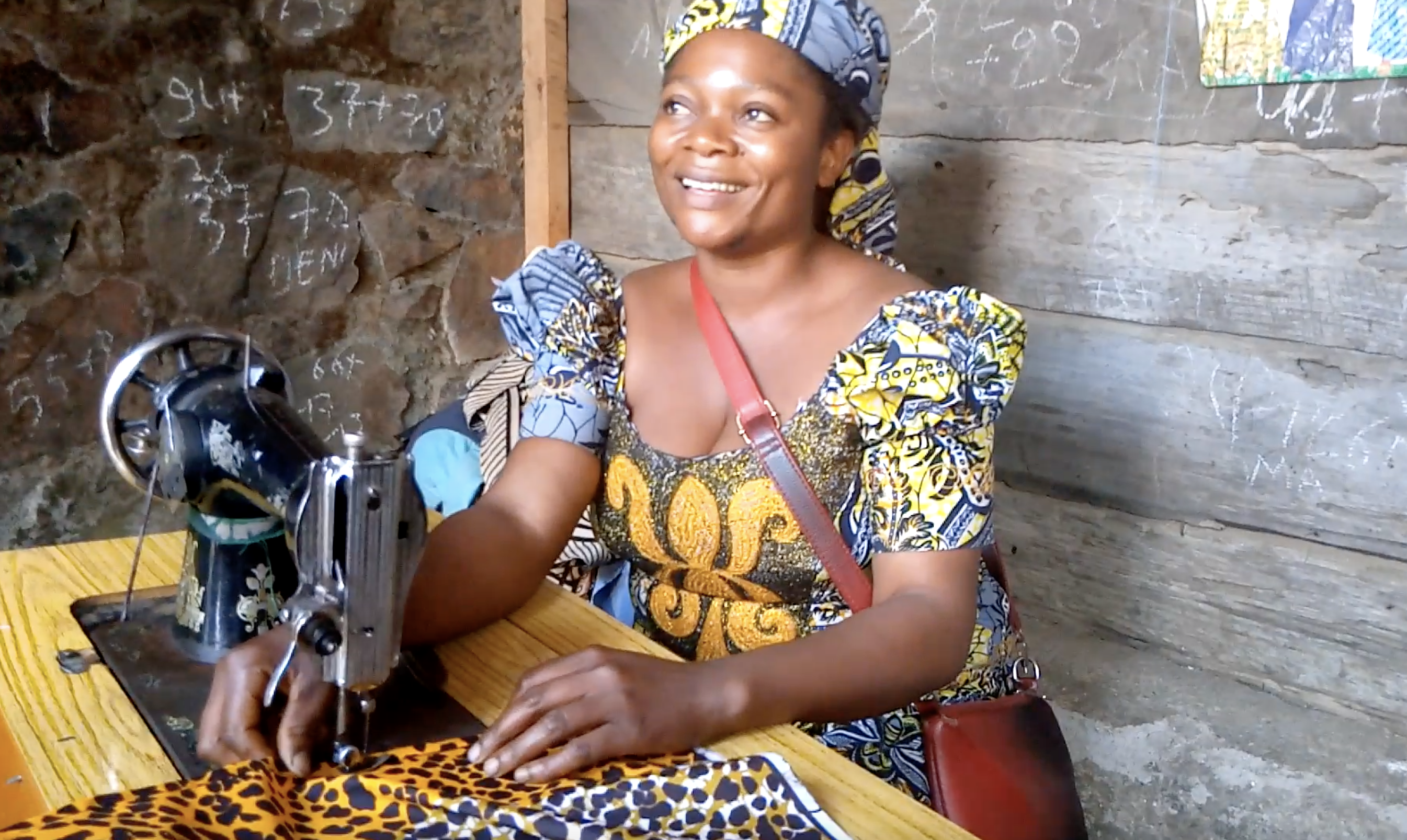
Mission
Resolve Network (Resolve) empowers women and men most affected by conflict to reclaim their lives, rebuild their communities, and build peace from the ground up. Through a participatory approach to peacebuilding, Resolve reinforces conflict survivors’ capacity to achieve measurable, sustainable peace from the individual, to the communal, to the societal level.
Life Challenges of the Women Served
There are thousands of women combatants in Congolese armed groups, where an estimated 40 percent of the child combatants are girls. Many entered the militia as children and this is the only community they’ve ever known or job they’ve trained for and held. When these women consider demobilizing, they face insurmountable obstacles that traumatize and disadvantage them. Congolese women ex-combatants (WXC) are criminally neglected and denied their basic dignity and human rights in the Disarmament, Demobilization and Reintegration (DDR) process. These women endure abuse and marginalization at every stage of the DDR process in ways that directly lead to remobilization.
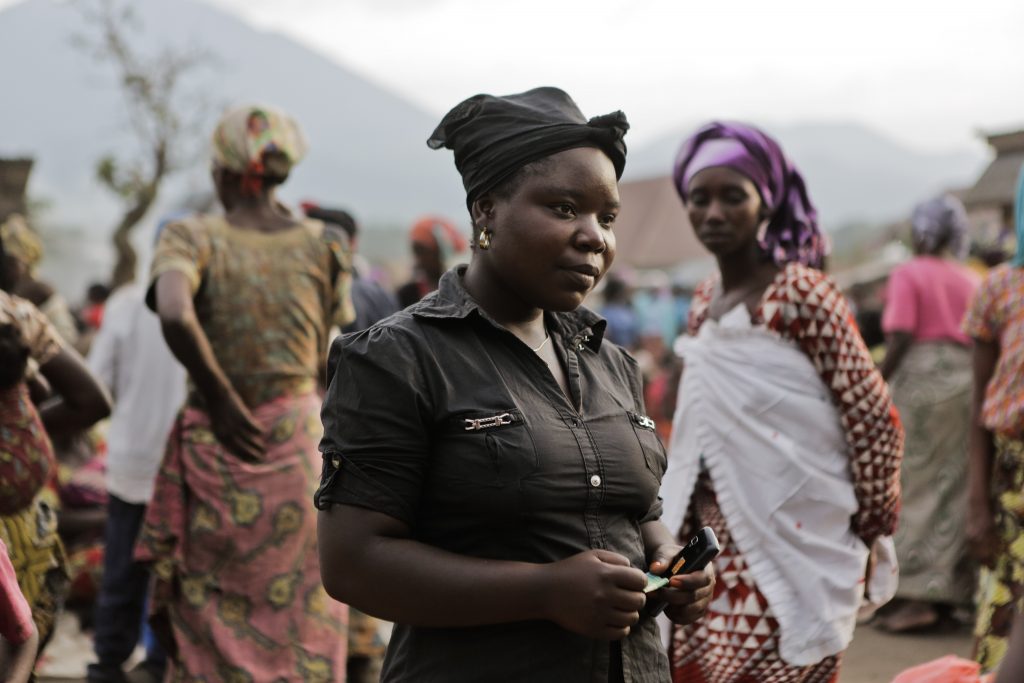
Copyright 2016 Daniella Zalcman
When demobilized combatants are taken to camp sites to wait for reintegration support, WXCs are pushed into desperation. As bad as these sites are for the men they were designed for, they are even worse for women. Knowing these flagrant humanitarian abuses are what awaits them puts WXCs in the position of either remaining combatants or being punished for seeking peace. On top of being starved in the cramped camps with endemic cholera and no health care, women face danger from others with no protection or recourse for crimes against them. These conditions drag on as women are told to wait their turn for 12 or 18 months or longer. Men are given priority for vocational training workshops and job programs until eventually, the limited funds for the camp run out and the already dire humanitarian situation becomes lethal, with Human Rights Watch reporting hundreds of deaths in camps. Many WXCs never make it to the camps, as government workers will tell them that they are going to a camp, load them up in trucks, take them several miles from any town known to them, and kick them out “without a plastic bag to hold over our heads to keep the rain off.”
Women are so marginalized in the DDR process in Congo that the governmental department tasked with DDR will not release statistics on how many of the 124,965 XC demobilized in the country so far have been women. Instead, these government officials demonstrate an open refusal to be held accountable for meeting aid targets or even gathering information about WXCs. MONUSCO, the UN Mission in Congo, also cannot provide statistics. This is unsurprising, since “Reporting on the UN System-Wide Action Plan on Gender Equality and the Empowerment of Women” (UN-SWAP) shows that UN entities have made limited progress in resource tracking and allocation for gender-focused interventions.
One-man-one-gun policies, now widely rejected as ineffective, serve as a microcosm of the cascading malfunctioning of many DDR policies as applied to WXCs. Since women in militias are often expected to fight and do the cooking and cleaning, they often share guns and don’t have one weapon to turn in per woman, thus denying many women recognition as ex-combatants and thus access to DDR aid. Even when women were assigned their own weapon, often times their commanding officer will take the gun and give it to male friends or relatives who were not in the militia so they can falsely benefit from DDR programs. This mix of societal sexism and biased DDR policies, combined with the high levels of women’s involvement in armed conflict, continuously fuels conflict by creating conditions where relative peacetime can be more threatening to WXCs than living in combat.
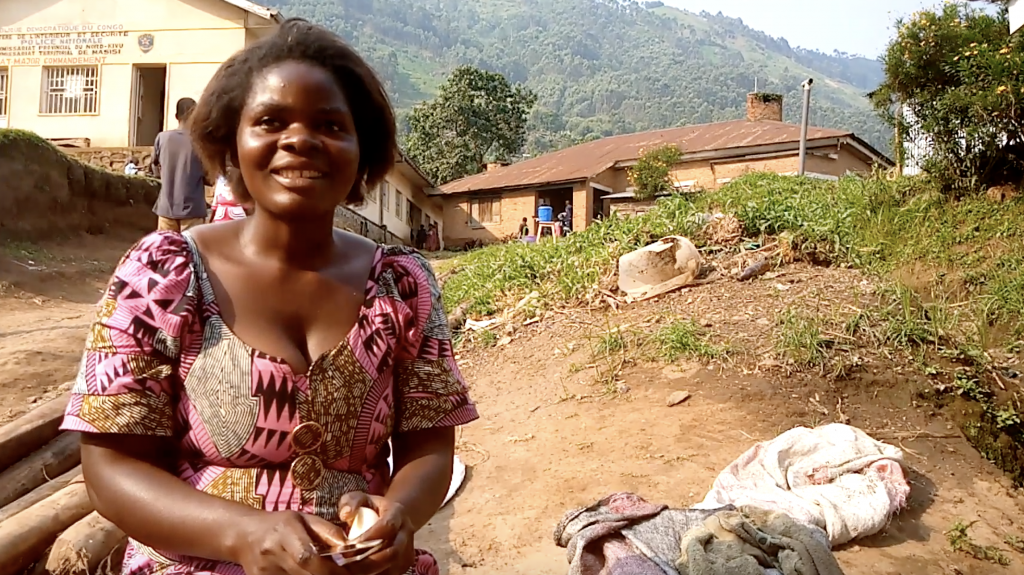 DDR programs are failing women with a severity and magnitude difficult to overstate, especially considering that two thirds of active women combatants would disarm if there were adequate support for their reintegration. These women should not have to remain in life-threatening conditions as combatants and sex slaves because they fear leaving the militia is certain death for them and their children. It is the failure of the DDR process alone that is keeping these women in combat, or stranding WXCs in life-threatening danger and social isolation.
DDR programs are failing women with a severity and magnitude difficult to overstate, especially considering that two thirds of active women combatants would disarm if there were adequate support for their reintegration. These women should not have to remain in life-threatening conditions as combatants and sex slaves because they fear leaving the militia is certain death for them and their children. It is the failure of the DDR process alone that is keeping these women in combat, or stranding WXCs in life-threatening danger and social isolation.
The international community continues to fail WXCs with enormous human costs, not only for WXCs and their dependents, but for all those affected by peace processes. There is unconscionably low programmatic and financial commitment to fulfill the promise of policy, and for untold numbers of women, remaining under life-threatening conditions in militias is the logical choice because they know to demobilize would kill them and their children faster.
The Project
Resolve Network’s program allows 100 WXCs at highest risk to sustainably demobilize and reintegrate into civilian life. This program takes place in Masisi Centre, an area with high levels of return for former combatants. These women will rise out of extreme poverty, achieve food security, experience improved mental health, launch their own small enterprises, and build the capacity, opportunities, and community social cohesion necessary for their sustainable reintegration into civilian life. Participants will document and publicize their experience to demonstrate the viability of evidence-based, participatory approaches to DDR to combatants and peace practitioners alike. Participants take great pride in this transformation. They not only become self-sufficient, but also are able to support their families and contribute meaningfully to their communities. 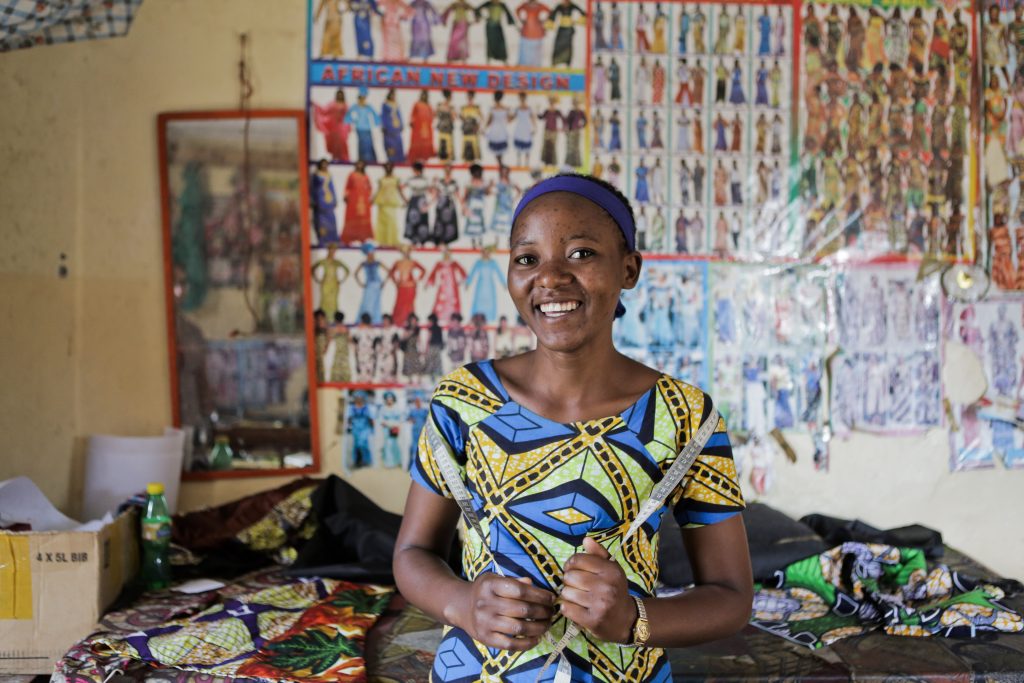 These 100 WXCs will address the conflict dynamics that most significantly contribute to militia-membership being their sole recourse. This one-year project is the epitome of the Resolve mission as it empowers women most affected by conflict to implement evidence-based solutions to meet their self-defined needs.
These 100 WXCs will address the conflict dynamics that most significantly contribute to militia-membership being their sole recourse. This one-year project is the epitome of the Resolve mission as it empowers women most affected by conflict to implement evidence-based solutions to meet their self-defined needs.
Participant incomes will rise from approximately $0.32 per day to at least $3.10 per person per day within four months and $5.00 within 12 months. (In past iterations, participants have increased their income by more than 4,065 percent within one year.) They will have improved food security within four weeks and have stable year-round access to a nutritionally balanced diet within six months (which will also function as a year-round secondary source of revenue). Through psychosocial support, beneficiaries will be better able to manage their trauma, and gain a safe space to seek support in case of future distress.
This program fosters profound improvements in the lives of participants and their families. Beneficiaries become self-sufficient, often for the first time in their lives, earning enough to feed their families three nutritionally balanced meals per day. All their school-age children will be able to attend school. They will have seasonally appropriate and clean clothes and shoes, and they will have secure rainproof roofs on their homes. The simple act of being able to buy soap to clean clothes and bathe has profound impact on participants: shame no longer bars them from participating in their community.
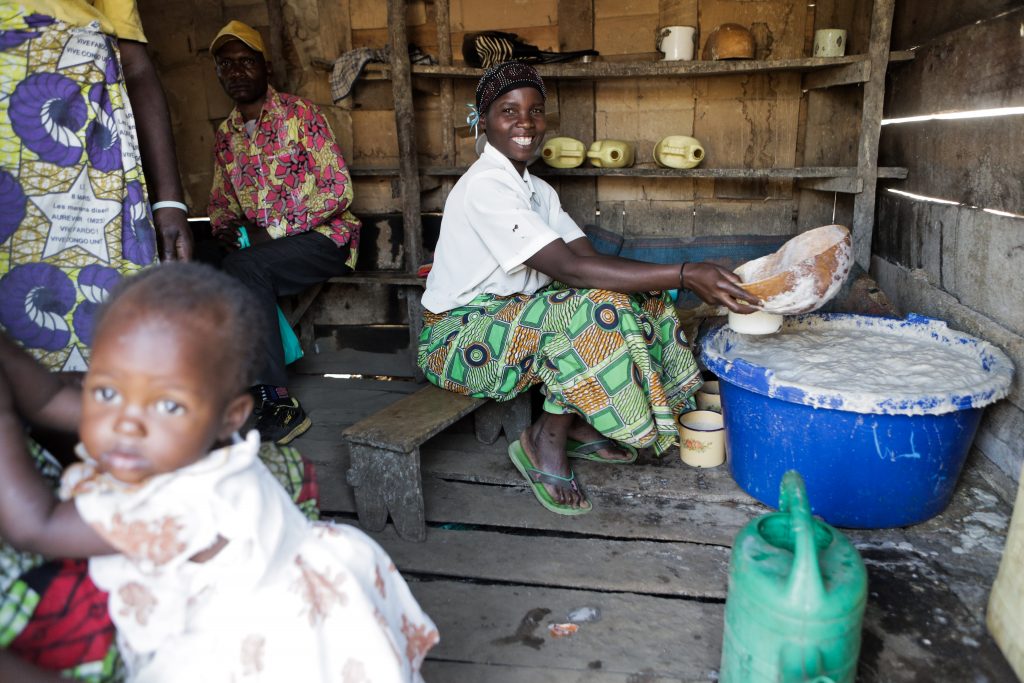
Copyright 2016 Daniella Zalcman
Social reintegration supports sustainable demobilization. As Resolve Network has seen from past programs in Masisi, ex-combatant beneficiaries experience a huge drop in their belief that they need to resort to violence to meet their personal and civic needs. Nonbeneficiary civilians report a corresponding drop in their fear of ex-combatants, promoting a virtuous cycle of lessened fear and increased cooperation that builds resilience to conflict dynamics. Resolve predicts that the beneficiaries of this program will report similar results and, like every Resolve beneficiary before them, will remain demobilized for the foreseeable future, as determined through longitudinal interviews.
To achieve these goals, Resolve Network will use a participatory, evidence and data-based approach. Forty-six current participants will become peacebuilding Community Implementers (CI) and partners to the 100 WXCs. Psychosocial support will be provided, as well as trainings on peaceful cohabitation and financial management, microfinance, and food security activities. Participants will also target peacebuilding progress at the community level to support the 100 WXCs successful social reintegration. Participants build community social cohesion and resilience to conflict by leading community dialogue.
The specific components of the program include:
- Community Implementer (CI) Trainings: 46 former participants who led this project’s design process train as Community Implementers who will work with field staff.
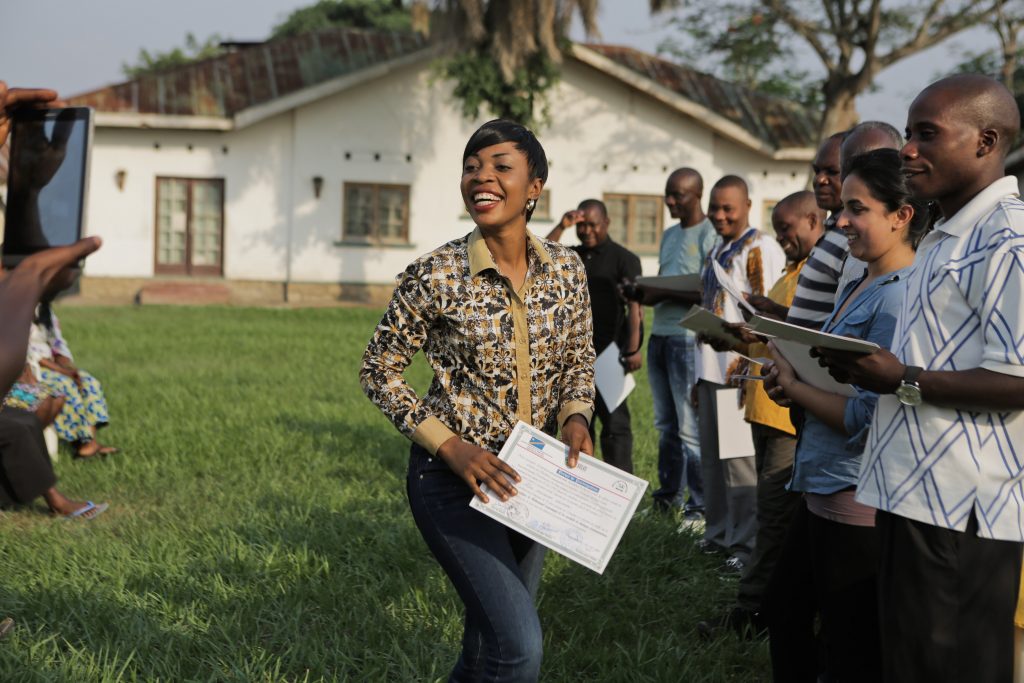 Psychosocial support: HROC (Healing and Rebuilding Our Communities) and Resolve staff will conduct counseling sessions, group therapy, and use activities such as “Treating Trauma with Tapping,” art therapy, therapeutic sports exercises, and AA-like group sharing to improve participants’ mental health.
Psychosocial support: HROC (Healing and Rebuilding Our Communities) and Resolve staff will conduct counseling sessions, group therapy, and use activities such as “Treating Trauma with Tapping,” art therapy, therapeutic sports exercises, and AA-like group sharing to improve participants’ mental health.- Share the Seeds: CIs and participants will collaborate with local agriculturalists to develop best growing practices beyond subsistence level farming. After harvests, they will share seeds and techniques with over 340 at-risk families from different socio-ethnic groups, reinforcing food security, opportunities for secondary income, and social cohesion. After the second harvest, they will share seeds and skills to help school children start vegetable gardens.
- Documenting the process: CIs and participants who choose to will document and publicize their experience of the program through their preferred form of media and content creation. CIs have several creative and potentially high-impact ideas, among them: radio shows to encourage current militia members to demobilize, video dialogue sessions with supporters to exchange and develop ideas on peacebuilding, and presenting at peacebuilding conferences via video.
- Peaceful Cohabitation Training: Field staff and CIs will train participants on conflict dynamics, its root causes, and best strategies to address it at the community level.
- Financial Trainings: Participants learn principles of budgeting, building savings, managing debt, monitoring cash flow, financial negotiation, navigating financial services. They also learn to and then conduct market assessments and develop business plans with benchmarks to rise out of Global Poverty.
- Microloans: Participants receive $125 as a zero-interest loan to start their own enterprises according to their business plans. They meet weekly with field staff and with their cohorts to monitor progress/troubleshoot challenges. After a month’s grace-period, they repay approximately two percent per week, which goes into a communal pot to finance participatory peacebuilding projects for their community. The repayment rate is typically above 99 percent.
- Community Risk Reduction Plans: Resolve supports participants and community members to identify and monitor risks and develop corresponding mitigation strategies and specific de-escalation actions to take when threat levels rise.
- Community Peacebuilding Action Plans: Resolve support participants and community members to develop and validate a common narrative of conflict, to identify ongoing impacts of past conflict and the risks for future conflict, and to develop and prioritize high-impact peacebuilding projects to address their needs.
Impact – Direct: 123; Indirect: 4,3800
UN Sustainable Development Goals
![]()
![]()
![]()
![]()
![]()
![]()
Questions for Discussion
- How do you think efforts for WXCs could influence prospective combatants?
- How might the positive outcomes from this program carry over to participants’ broader family life?
- Why do you think Resolve Network has had a 100 percent success rate in similar programs?
How the Grant Will be Used
NOTE: During these unprecedented times of COVID-19, Dining for Women has adapted grant funding and offered flexibility to grantees in the timeline, budgets and execution of their projects. These adjustments will be reported in the grantee reports.
DFW’s grant of $50,000 will be used for the following:
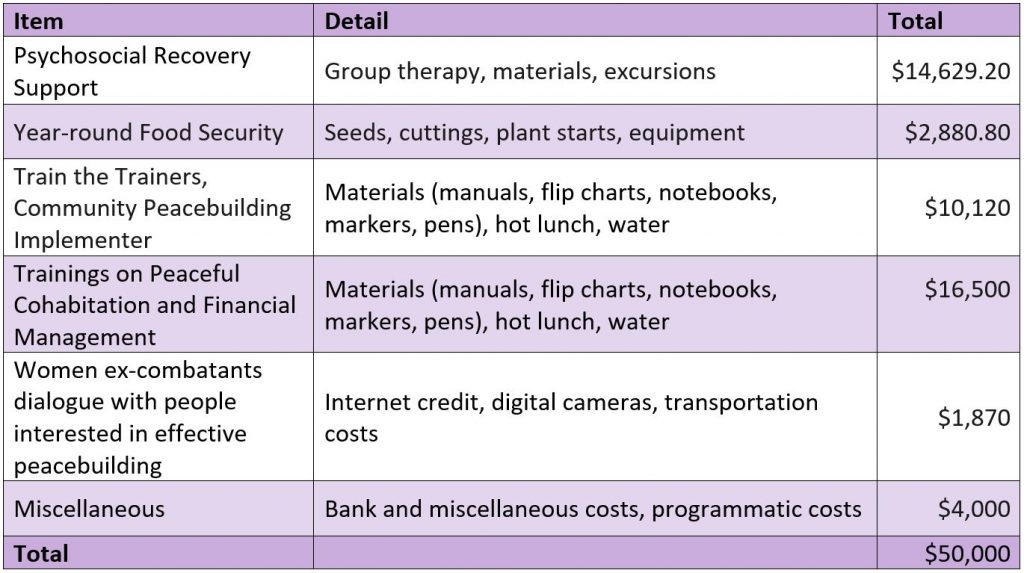
Why We Love This Project/Organization
Resolve Network is unique in its very successful approach to reintegrating former female child soldiers from combatants to peacebuilders. Resolve Network steps in where the international community has failed because of official policies that favor men, unconscious bias, and prevailing conditions. This project works with these former women combatants and communities to first demobilize the combatants, offer services, training and support to reintegrate them, and then to make them change agents in peacebuilding. Resolve Network’s work demonstrates the importance of having the women themselves be part of the process and be the decision makers and influencers of their own destiny.
Evidence of Success
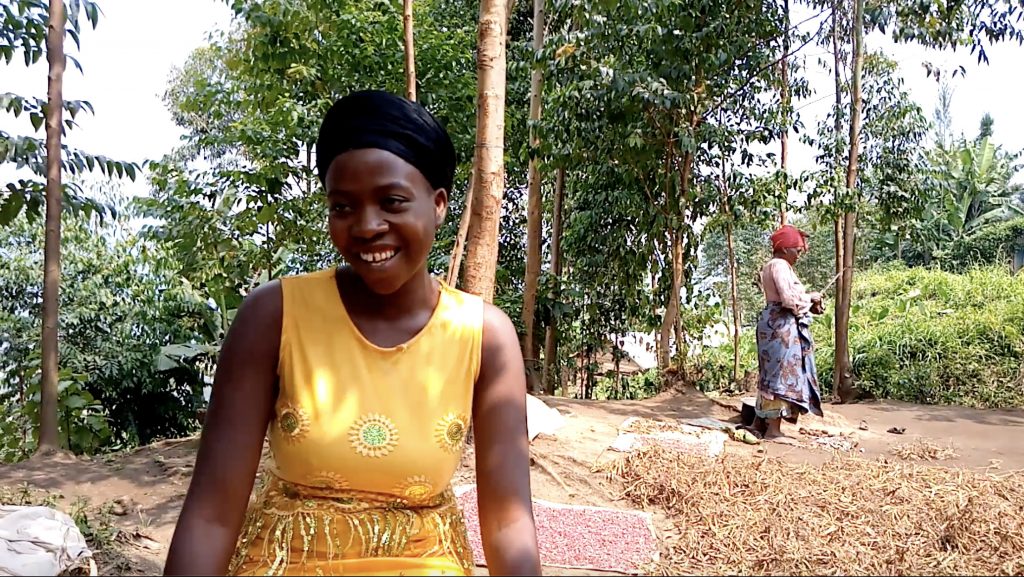 Two data points exemplify Resolve Network’s profound impact:
Two data points exemplify Resolve Network’s profound impact:
- – 100 percent of Resolve’s beneficiaries, past and present, rose out of global poverty and became self-sufficient.
- – Not a single participant, past or present, has ever (re)joined a militia after starting in Resolve’s program. Emboldened by their success in finding viable alternatives to violence, they quietly counter-recruit militants to demobilize.
Thousands of women at Resolve have transitioned from combatant to peacebuilder, and a plethora of peer-reviewed studies and practitioner reports have also documented this, and it has even been codified as international DDR policy.
Voices of the Girls
“People call me ‘Mama Resolve’ since I named my daughter Resolve for this change in my life. Before, I – and many of us – we thought violence was the only way to be strong and safe, to have means, to live. Now I know people like me in Liberia, South Africa, India, and here in DRC have shown that collaboration – action for the betterment of everyone – is more powerful. Maybe we already knew it in our heart of hearts, but we didn’t have the tools to make it real. It is difficult, and many oppose us, but I know we can do it.”
- Program participant
“I work every day to bring my community together. I am a peacemaker. The most important change for me individually [since joining Resolve] has been that I have become self-reliant and I have become an example for my family and my community. Instead of being a drain on my family, now I can support them and help them to be healthy. It helped me to find myself and to reach a better place in my life, which makes me proud.
I have also changed in ways that have changed my community. Before, I had a very bad temper, and I had to learn to think calmly. Resolve’s program taught me mediation – how can I hear and unite two conflicting groups through mediation techniques to have a win-win result.
I learned to claim my rights without violence, what it means to claim my rights patiently and calmly and from a position of knowledge. This has helped me, and the people I have shared it with, … to bring about changes that improve life for everyone.”
- Chantal
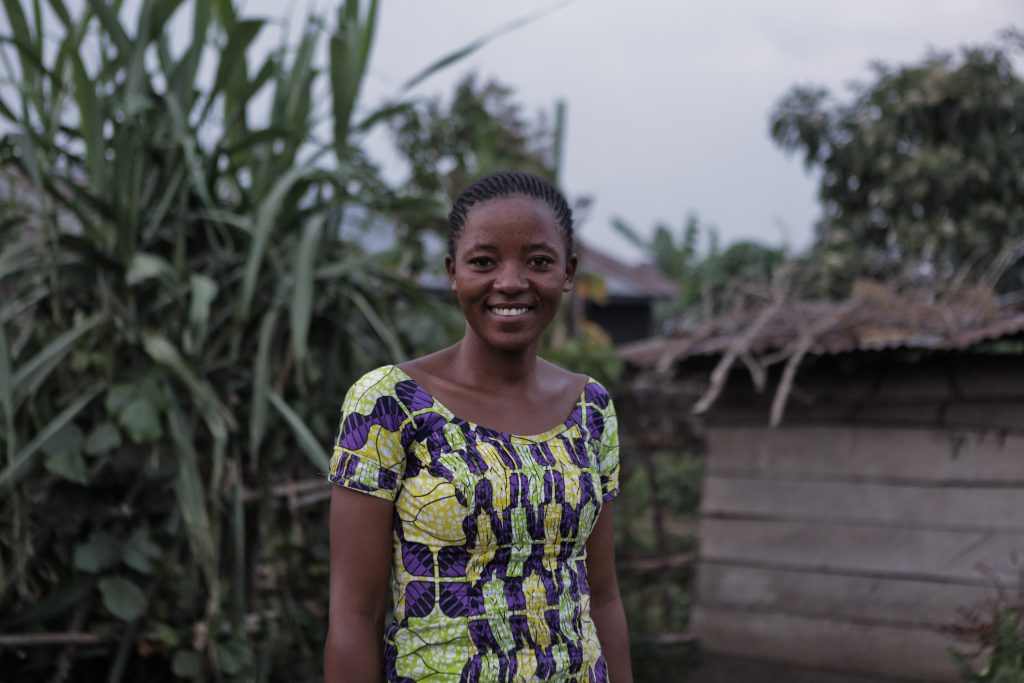
Copyright 2016 Daniella Zalcman
“Being in this program with so many others really opened my eyes.[…] We are from different ethnic groups, different ages, there are men and women, different religions even, but no matter who – we all have changed so much. […] We collaborate. We are productive. We contribute to our community. I am a peace artisan. My community is more peaceful because of me. That is why I am so eager to train other women like me. I’ve seen this transformation in myself, in my friends. I know what it takes to make it happen, and I can make my community safer by teaching others.”
- Immaculée
“Before, I had a lot of problems because I didn’t know how to live with others. Now, I’ve improved my relationships with others. The trainings helped me a lot, because now I contribute to resolving conflict in my community… I would also like others to learn what I have learned, especially women bandits. I can teach them, if we have the means.”
- Clémentine
About the Organization
Vijaya Thakur launched Resolve in 2010. Since then, Resolve Network has provided:
- Conflict/context analysis: Before deciding on an intervention strategy, Resolve conducts a rigorous conflict analysis and baseline survey. Over the course of the analysis, Resolve interviews hundreds of people – with equitable representation of women and all ethnic and social groups present in the community. Care is given to include all vulnerable/marginalized groups in this process, as their voices are often overshadowed.
- Participatory Action Research: Resolve brings community members together to discuss, validate, and build upon the findings of the conflict analysis.
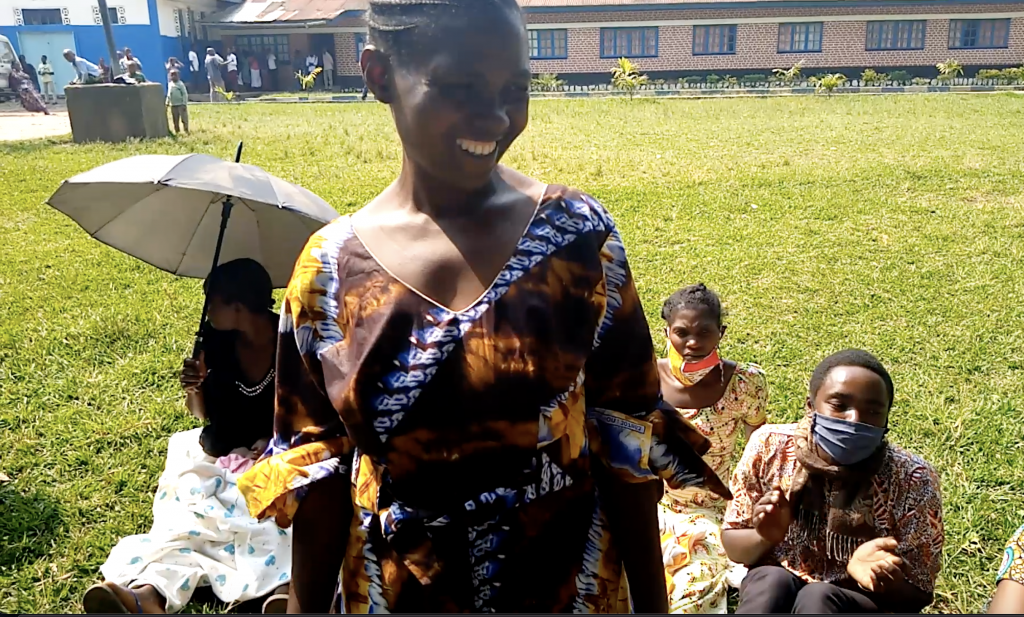
- Peaceful Cohabitation Training: Participants gain an understanding of conflict dynamics, its root causes, and the best way to address it at community level. As they learn about types of violence and conflict dynamics, they become better equipped to identify opportunities to promote peace.
- Nonviolent Action Training: Participants learn and practice the skills necessary to identify and investigate unmet community needs, and to develop and implement sustainable, high-impact, peaceful solutions as a community.
- Financial Literacy Training: Participants learn foundational principles of budgeting, building savings, managing debt, monitoring cash flow, financial negotiation, and navigating financial services. They also conduct market assessments and develop business plans with benchmarks to rise out of global poverty.
- Microloans: Participants receive $125 as a zero-interest loan to start their own enterprises according to their business plans. They meet with field staff and with their cohorts to monitor progress and troubleshoot challenges. After a month’s grace-period, they repay approximately 2 percent per week, which goes into a communal pot to finance participatory peacebuilding projects for their community.
- Community Risk Reduction Plans: Resolve supports participants and community members to identify and monitor risks, develop corresponding mitigation strategies, and specific de-escalation actions to take when threat level changes.
- Community Peacebuilding Action Plans: Resolve supports participants and community members to develop and validate a common narrative of conflict, to identify ongoing impacts of past conflict and the risks for future conflict, and to develop and prioritize high-impact peacebuilding projects to address their needs.
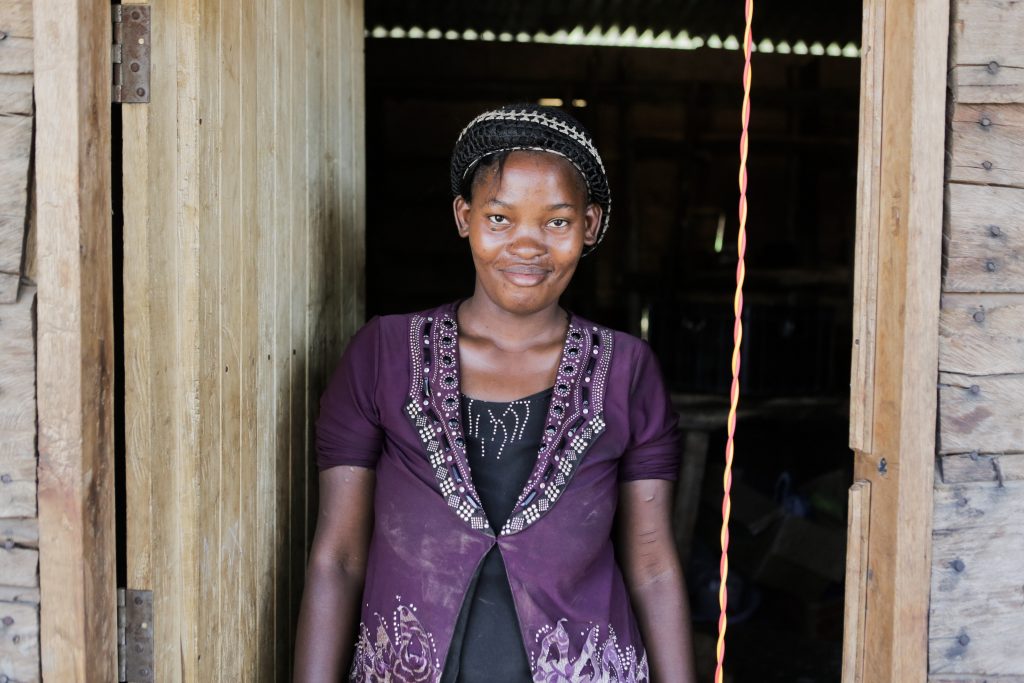
Copyright 2016 Daniella Zalcman
Resolve has evolved and improved by learning from their experiences. For example, by 2012 they established $125 as the minimum microloan because they saw it was the “tipping point” amount that allowed participants to launch businesses profitable enough to raise them out of global poverty within eight months rather than over two years. When Resolve saw the unprecedented DDR results of their programs and how significantly it contributed to community confidence in peaceful alternatives to armed group membership, they made demobilization a core focus of their programming. Finally, Resolve significantly lengthened the training period to add simulation exercises developed to ensure participants internalize practicable peacebuilding strategies.
Where They Work
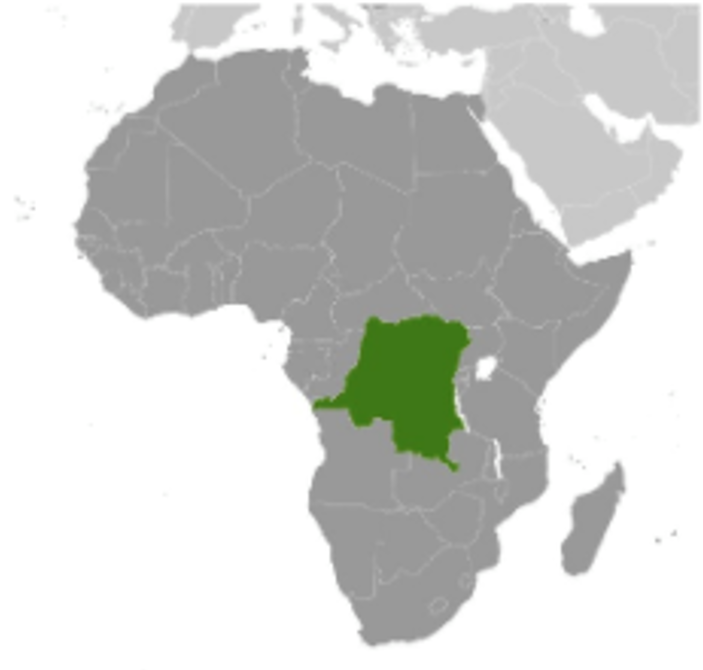
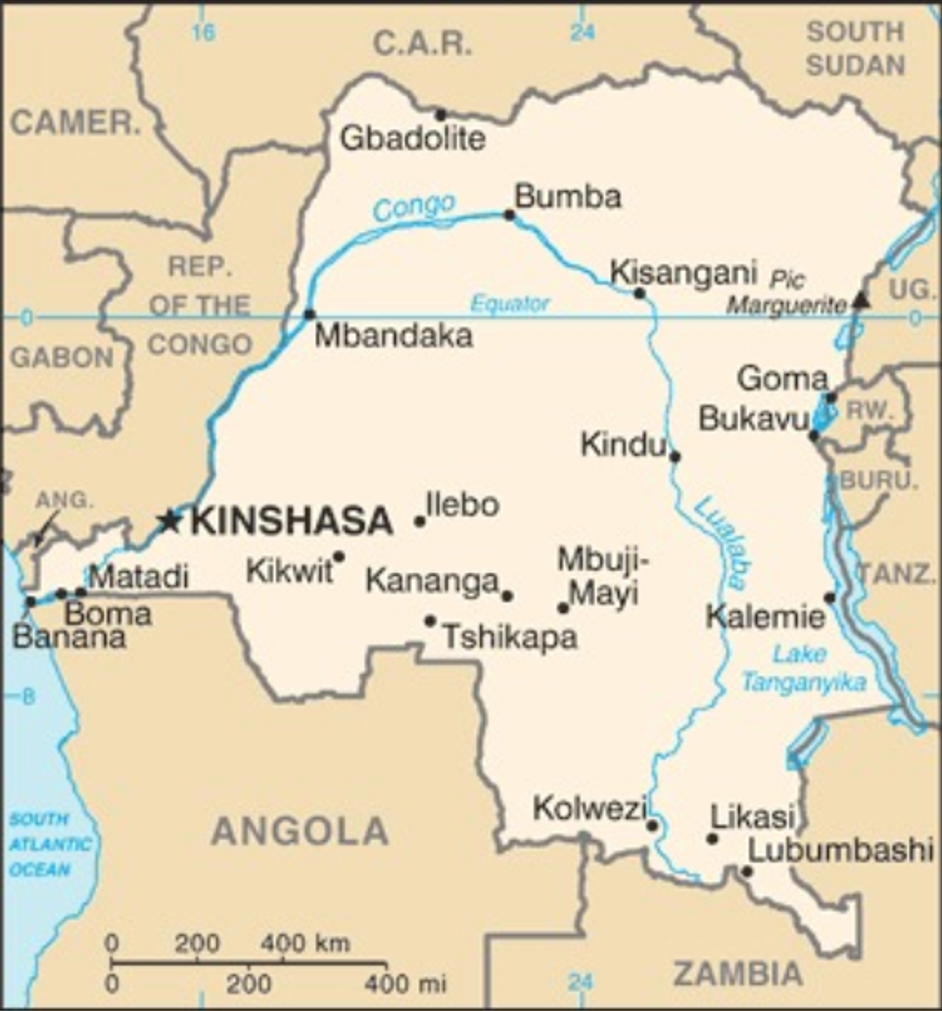
Resolve is active in the Democratic Republic of the Congo (DRC), in North Kivu province. They work in rural, underserved areas of Rutshuru and Masisi territories.
Eastern Congo has been at war since the instigators of the 1994 Rwandan genocide arrived. Many who arrived formed armed groups to oppose the Tutsi and other rebel groups. When the Congolese government was unable to control these factions, war ensued. That, and Congo’s plentiful natural resources and minerals, sparked intense conflicts that have altered and ended many lives. Today there are more than 100 armed groups operating in the eastern region of the DRC. These groups reign terror down on communities and take over weakly governed regions. The United Nations estimates that there are 4.5 million displaced persons in the DRC and more than 800,000 DRC refugees who have fled to other nations.
DRC is a large country in central Africa, about a quarter of the size of the US. Population is 102 million. The climate varies depending on location: hot and humid in the equatorial river basin, cool and dry in the southern highlands, and cool and wet in the eastern highlands where Resolve Network’s program takes place. In addition to the problem with the mineral trade, many Congolese succumb to poaching to escape poverty. Rebel groups also use it to continue the civil war.
DRC is fraught with government instability and corruption. Former ruler Mobutu Sese Seko oversaw Congo from 1965 – 1997 (when he renamed the country Zaire). He institutionalized corruption to prevent any challenges to his authority and stole billions of dollars while in office. This led to economic collapse in 1996.
In addition to child soldiers, child labor is common. Violence against women is so commonplace that in a 2013 Demographic and Health Survey, three out of four women agreed that a husband was justified in beating his wife in certain circumstances. The eastern region where Resolve works has been called the “rape capital of the world.”
A Closer Look at life for Congo’s female soldiers
Female combatants have been a part of Congolese militias for a long time. Militia members fight for land control with or against the government military. Women comprise up to 20 percent of the armed groups. In the process, they endure horrific violence, including rape, torture, abuse, and the mutilation and killing of unborn children. Sexual violence is so severe in Congo that it is sometimes described as the worst in the world. Husbands often abandon wives who have children born from rape; these women are ostracized from society and neglected. In 2019, a group of schoolgirls in Congo were raped, forced into marriage, and used as human shields.
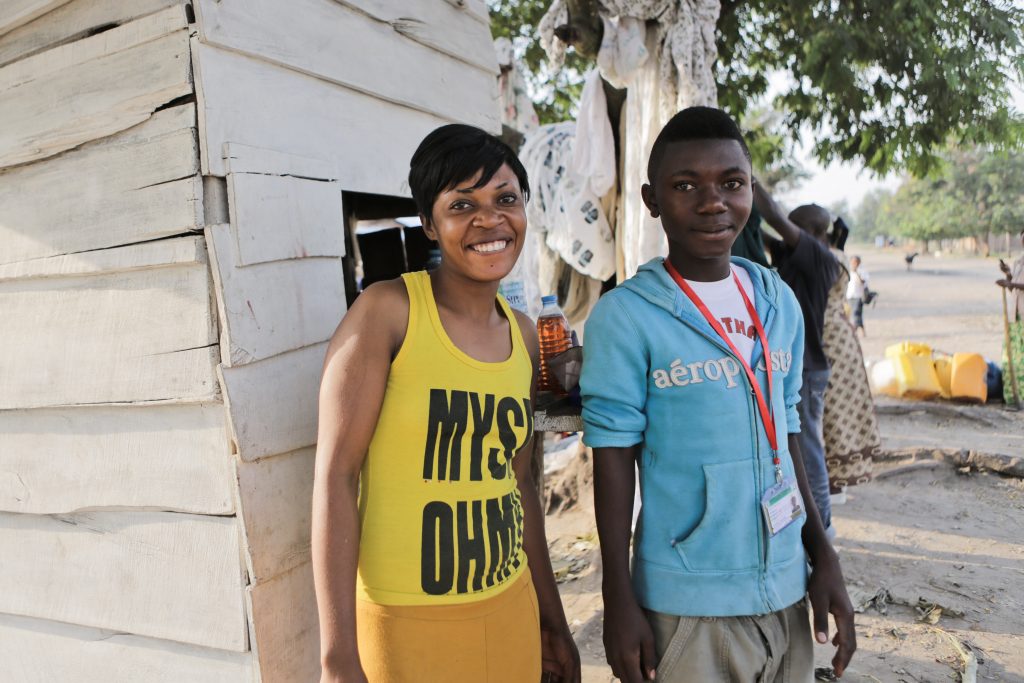 Half of the girls in the Congo militia are sexually assaulted by soldiers. Young girls, who comprise 40 percent of the underage soldiers, often endure this horrific treatment not once, but as routine events. They are actively recruited as young girls and then face unrelenting social stigma when they are freed – so much so that they often go back to these violent groups and rejoin them.
Half of the girls in the Congo militia are sexually assaulted by soldiers. Young girls, who comprise 40 percent of the underage soldiers, often endure this horrific treatment not once, but as routine events. They are actively recruited as young girls and then face unrelenting social stigma when they are freed – so much so that they often go back to these violent groups and rejoin them.
It’s no surprise that Congo is said to be one of the most dangerous places in the world to be a woman. Decades of non-stop war and inhumane violence has torn families apart, ended lives, and left permanent mental health scars on all affected. Unfortunately, the trend has moved in the wrong direction: 1,300 were killed in the first half of 2020, which is three times as many as in 2019. According to the United Nations, some of these war crimes may be classified as crimes against humanity.
Source Materials
https://www.cfr.org/global-conflict-tracker/conflict/violence-democratic-republic-congo
https://www.worldvision.org/disaster-relief-news-stories/drc-conflict-facts
https://www.cia.gov/library/publications/the-world-factbook/geos/cg.html
https://www.washingtonpost.com/graphics/2019/world/amp-stories/the-female-soldiers-of-congo-wars/
https://www.omicsonline.org/open-access/maimai-militia-and-sexual-violence-in-democratic-republic-of-the-congo-1522-4821-16-130.php?aid=31892
https://news.trust.org/item/20190520143715-6096w/
https://www.ituc-csi.org/IMG/pdf/ituc_violence_rdc_eng_lr.pdf.pdf
https://www.unifor.org/sites/default/files/attachments/sjf-casestudy-congowomen-en-v1.0.pdf
https://africa.cgtn.com/2020/08/05/dr-congo-armed-groups-killed-1300-in-first-half-of-2020-un/
https://www.refworld.org/docid/3d199ffd4.html
http://www.ipsnews.net/2017/06/sexual-violence-fuels-vicious-recruitment-cycle-congolese-militia/
